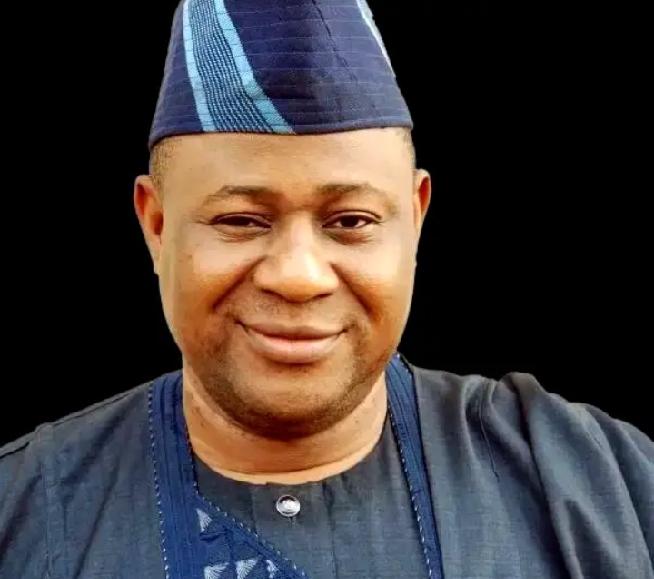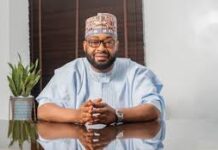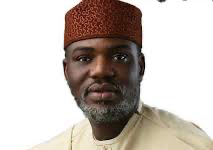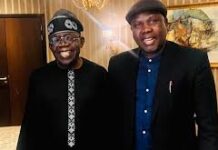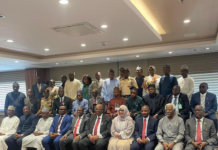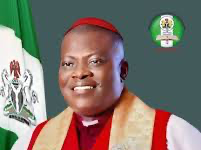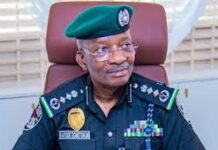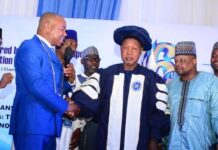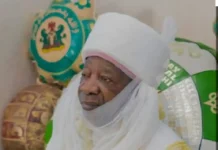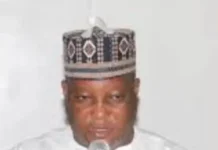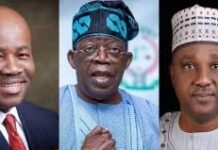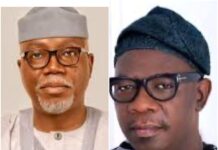New Law Criminalising Journalism Practice in Nigeria
Soni Daniel
POLITICS DIGEST – The Nigerian Guild of Editors, NGE, has rejected the bid by a member of the House of Representatives, Odebunmi Olusegun (pictured above), to amend the law establishing the Nigerian Press Council, NPC, and the National Broadcasting Commission, NBC.
They said the envisaged amendments would kill free press in Nigeria and render journalists captives in the land.
The Guild, in a statement by the President, Mr. Mustapha Isah and General Secretary, Iyobosa Uwugiaren, yesterday, described both the NPO and NBC amendment bills as draconian, given the provisions inserted into them by the sponsor of the bills Odebunmi Olusegun, a member of the House of Representatives from Oyo State, who is neither a journalist nor a social scientist.
The Guild argued that while the sponsors of the bills claimed that the amendments were geared towards moderating the ‘recklessness of the media, the bills are actually criminalising journalism practice in the country.
The body of editors argued that the media, which serve as the ‘oxygen of democracy’ would be strangulated if the bills are passed into law.
“At a time there is a popular ongoing global conversation about the need for a #NewDealForJournalism”, for immediate and sustained action from, and collaboration between governments and other influential actors to improve the policy, funding, and enabling environment for independent professional journalism, we see the proposed laws as unhelpful.
“While we are not opposed to an Act that will promote media stakeholders-driven regulatory council, the many draconian provisions in the Odebunmi Olusegun-sponsored bills are actually aimed at criminalising media practice in Nigeria.
“While the intention of the sponsor of the bills is suspicious, the bills negate all known features of media regulatory bodies in the world,’’ the Guild said.
It contended that while the NPC Act CAP N128, Laws of the Federation of Nigeria 1992, created by the military dictatorship gave the Council board full responsibility to administer the council, the proposed Act restricts the council board to ‘’advisory capacity on a part-time basis without direct interference in the day to day administration of the council”, and gives the Executive Secretary all the powers.
The Guild stated further that “While the proposed NPC Act says the Board shall consist of one representative each from the Nigeria Union of Journalists (NUJ); Nigerian Guild of Editors (NGE); Newspapers Proprietors Association of Nigeria (NPAN); Broadcasting Organisation of Nigeria (BON); Ministry of Information; two representatives of the general public, one of whom shall be a legal practitioner and a woman and Executive Secretary of the council, who shall serve as the secretary to the Board, the board is a mere advisory body.
“The Bill also says that the Chairman of the Board shall be appointed by the President on the recommendation of the Minister in charge of Information.
“And that all other members of the Board shall be appointed by the President on the recommendation by the Minister of Information. The intention of this kind of Council is suspicious.’’
Read Also:
The body of editors is of the view that the professional body doesn’t need the approval of the Minister of Information to establish and disseminate a National Press Code and standards to guide the conduct of print media, related media houses and media practitioners and approves penalties and fines against violation of the press code, as provided for in the bill.
“The Guild is not aware of any media regulatory council in the world, which says media regulatory council shall establish a National Press and Ethical Code of Conduct for media houses and media practitioners, which shall come into effect and be disseminated after approval by the Minister of Information, and that the code shall be binding on every media houses and journalists.
“Again, apart from the fines for journalists or media houses that violate the Act, the bill also says that in an extreme case, the council shall order the striking out of the name of the journalist from the register;
“And suspend the person from practice by ordering him not to engage in practice as a journalist for a period not exceeding six months; as may be specified in the directive.
“This kind of media regulatory council will neither serve the interest of the media industry, strengthen its constitutional role of holding public officers accountable to the people nor serve the general interest of the public, who are the original trustees of the media,” the Guild explained.
The NGE noted that in the proposed NPC legislation, the sponsor mischievously smuggled in the controversial ‘’fake news” provision, stating that any person who carried news established to be fake thereafter, committed an offence;
“And was liable on conviction to a fine of N5 million or a term of two-year imprisonment or both, as well as a compensation of N2 million payable to the person(s), group(s), corporate bodies, government or any of its agencies whom the news was carried against.”
According to the NGE, the bill also states that any print media house whose m edium is used to carry such news is liable on conviction to a fine of N10million or closure of such media house for a period of one year or both;
“And compensation of N20 million to the person, group, corporate body, government or any of its agencies, whom the news was carried against.”
On the proposed NBC amendment legislation, the Guild said Section 23 of the bill which gave the Minister of Information powers to participate in the making of regulations, was unhelpful, saying the participation of the minister will turn NBC into a tool for political interference.
The Guild noted that the provisions of the two bills gave the impression that the Federal Government was out to crush its enemy, insisting that the media was not an enemy of the state.
The NGE added that the two bills if passed, would compound the nation’s negative image in the global community.
“Nigeria comes in at No. 120, the rough equivalent of a D+ in this year’s index by Reporters Without Borders.
“You’ll find similar results on the Democracy Index where Nigeria is ranked No. 110— the lowest-ranking Hybrid Regime, one slot away from Authoritarianism,’’ the NGE said.

